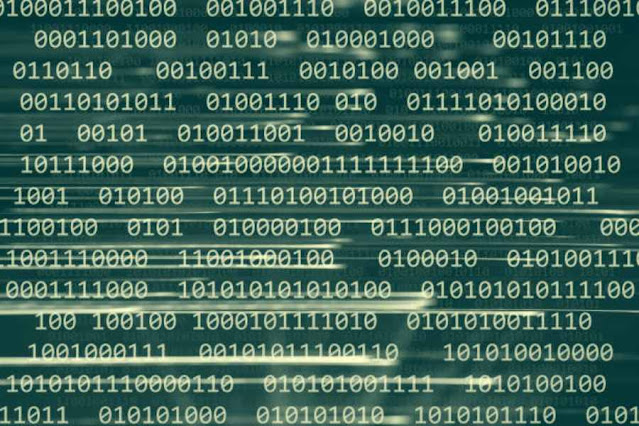The Importance of File Integrity Checking in a Comprehensive Cybersecurity Framework

File Integrity Checking in a Comprehensive Cybersecurity Framework
Introduction
In today's digital age, the security of data and information
is of paramount importance. Cyber threats constantly evolve, becoming more
sophisticated and challenging to detect. To effectively safeguard digital
assets, organizations must adopt a comprehensive cybersecurity framework that
includes multiple layers of defense. File Integrity Checking (FIC) is a crucial component of such a framework, offering a proactive approach to identifying
unauthorized alterations or data corruption. In this article, we will reconnoiter
the importance of File Integrity Checking in a comprehensive cybersecurity
framework, its role in early threat detection, compliance, and data protection.
The Importance of File Integrity Checking (FIC)
File Integrity Checking is an essential cybersecurity
practice that ensures the integrity, consistency, and security of digital files
and data. Its importance in a comprehensive cybersecurity framework cannot be
overstated for the following reasons:
Early Threat Detection:
FIC helps organizations detect security threats at an early
stage. Any unauthorized changes or alterations to critical files or data are
quickly identified, allowing for timely incident response and threat
mitigation.
Insider Threat Detection:
Insider threats, such as malicious employees or contractors,
pose a significant risk to organizations. FIC is effective at detecting insider
threats who may attempt to manipulate or delete files for malicious purposes.
Data Protection:
Ensuring data integrity is vital for protecting against data
corruption, accidental deletions, or data loss. FIC plays a crucial role in
maintaining the consistency and reliability of digital information, ensuring
organizations can rely on accurate and consistent data.
Compliance:
Many regulatory frameworks and industry standards require
organizations to maintain data integrity. FIC helps organizations meet
compliance requirements by providing evidence of data integrity maintenance.
Maintaining Trust:
Trust is a critical factor in business and data exchange. By
ensuring the integrity of files and data, organizations maintain trust with
customers, partners, and stakeholders who rely on accurate and secure
information.
File Integrity Checking in a Comprehensive Cybersecurity Framework
A comprehensive cybersecurity framework encompasses a range
of security measures and practices designed to protect against a wide array of
threats. FIC plays a vital role in this framework for the following reasons:
Defense in Depth:
A comprehensive cybersecurity framework employs a
defense-in-depth strategy, which involves using multiple layers of security to
protect against various threats. FIC adds an additional layer of protection by
focusing on the integrity of files and data.
When combined with other security measures, such as
firewalls, intrusion detection systems, and antivirus software, FIC enhances
the complete security attitude of an organization.
Early Threat Detection:
FIC provides early threat detection by monitoring changes to
files and data in real time. This proactive approach allows organizations to
identify and respond to security incidents promptly.
Early threat detection is crucial for minimizing the impact
of security breaches and preventing data loss or unauthorized access.
Compliance and Reporting:
FIC tools often maintain logs and reports of all file
integrity checks and their results. These logs are valuable for compliance
purposes, providing evidence of data integrity maintenance.
In a comprehensive framework, compliance with central
standards and industry-specific requirements is a critical component. FIC
contributes to meeting these compliance obligations.
Data Protection:
Protecting data from exploitation, loss, or unauthorized entree
is a essential aspect of cybersecurity. FIC ensures the data's integrity,
helping to maintain its consistency and reliability.
By adding an supplementary layer of data protection, FIC
helps organizations minimize the risk of data breaches and the associated economic
and reputational damage.
Trust and Reputation:
Maintaining the trust of clients, partners, and stakeholders
is vital in today's business environment. Any compromise of data integrity can
erode trust and damage an organization's reputation.
FIC helps organizations demonstrate their commitment to data
security and integrity, fostering trust among stakeholders.
Implementing File Integrity Checking
To implement File Integrity Checking effectively within a
comprehensive cybersecurity framework, organizations should follow these key
steps:
Assessment and Planning:
Start by assessing which files and data are critical to your organization's operations and security. Identify the assets that require regular integrity checks.
Develop a plan that outlines how FIC will be implemented,
including the selection of appropriate tools or software.
Selection of FIC Tools:
Choose FIC tools or software that align with your
organization's needs and goals. Consider factors such as scalability, real-time
monitoring capabilities, and integration with existing security solutions.
Baseline Creation:
Establish baselines for the files and data you want to
protect. Calculate and record hash values or checksums for these files, which
serve as the trusted reference points.
Regular Monitoring:
Implement regular monitoring and scanning of files and data
against their baselines. This monitoring should be continuous and occur in
real-time or at scheduled intervals, depending on the organization's
requirements.
Alerting and Response:
Configure FIC tools to generate alerts or notifications when
unauthorized changes or anomalies are detected. Establish incident response
procedures to address any security incidents promptly.
Logging and Reporting:
Maintain detailed logs and reports of all file integrity
checks and their results. These logs serve as an essential resource for
compliance, auditing, and incident response.
Conclusion
File Integrity Checking (FIC) is a fundamental component of
a comprehensive cybersecurity framework, providing early threat detection, data
protection, compliance, and trust maintenance. By focusing on the integrity of
files and data, FIC enhances the overall security posture of an organization
and helps safeguard against various threats, including insider threats and data
corruption. Incorporating FIC into your cybersecurity strategy is a proactive
step towards maintaining data integrity and ensuring the security of digital
assets in today's ever-evolving threat landscape.



Comments
Post a Comment